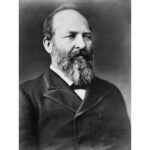Charles Goodyear was an American chemist and engineer who is best known for his discovery of the process of vulcanization, which is a method of strengthening and hardening rubber. Goodyear was born in New Haven, Connecticut on December 29, 1800 and grew up in a family that was involved in the hardware business. He became interested in chemistry and began experimenting with various materials, including rubber.
Goodyear’s experiments with rubber began in the early 1830s, and he spent much of the rest of his life attempting to find a way to make rubber more durable and useful. He tried many different methods, including heating and mixing it with various chemicals, but he was unable to find a solution.
In 1839, Goodyear had a breakthrough when he accidentally dropped a mixture of rubber and sulfur onto a hot stove, which caused the rubber to become harder and more durable. This discovery, known as vulcanization, revolutionized the rubber industry and made it possible to use rubber for a wide variety of applications, including tires, boots, and other products.
Goodyear’s discovery was met with great enthusiasm and he was hailed as a hero in the scientific community. Despite his many successes, Goodyear struggled financially throughout his life and died in 1860, deeply in debt. Despite this, his legacy lives on as he is remembered as one of the most important figures in the history of rubber and chemistry.
References:
https://www.britannica.com/biography/Charles-Goodyear
http://www.chemistryexplained.com/Ge-Hy/Goodyear-Charles.html




